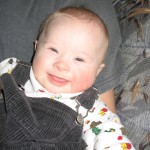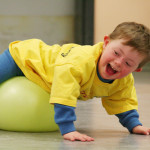Language is a reflection of how people see each other. We believe that when referring to an individual with Down syndrome it is important to use language which is both accurate and respectful of the individual.
-
People with Down syndrome should always be referred to as people first. Instead of “a Down syndrome child,” it should be “a child with Down syndrome.” Also avoid “Down’s child” and describing the condition as “Down’s,” as in, “He has Down’s.”
- Down vs. Down’s – FVDSS uses the preferred spelling, Down syndrome, rather than Down’s syndrome. This is because an “apostrophe s” connotes ownership or possession. Down syndrome is named for the English physician John Langdon Down, who characterized the condition, but did not have it.
- Down syndrome is a condition or a syndrome, not a disease.
- People “have” Down syndrome, they do not “suffer from” it and are not “afflicted by” it.
- While it is still clinically acceptable to say “mental retardation,” you should use the more socially acceptable “intellectual disability” or “cognitive disability.” FVDSS strongly condemns the use of the word “retarded” in any derogatory context. Using this word is hurtful and suggests that people with disabilities are not competent.
People with Down syndrome are sometimes portrayed as being happy and loving all the time or frequently as angels. However, avoid casting every person with Down syndrome as a superhuman model of humanity. They are unique individuals with unique personalities, and they experience a full range of emotions just like everyone else.
You can help others use responsible language which reflects the dignity of people with Down syndrome. Words can create barriers and reinforce stereotypes. Therefore, the FVDSS strongly believes in the importance of ensuring that correct language is used. A person is much more than a label or diagnosis. Help to educate others about the preferred way to refer to individuals with Down syndrome.


